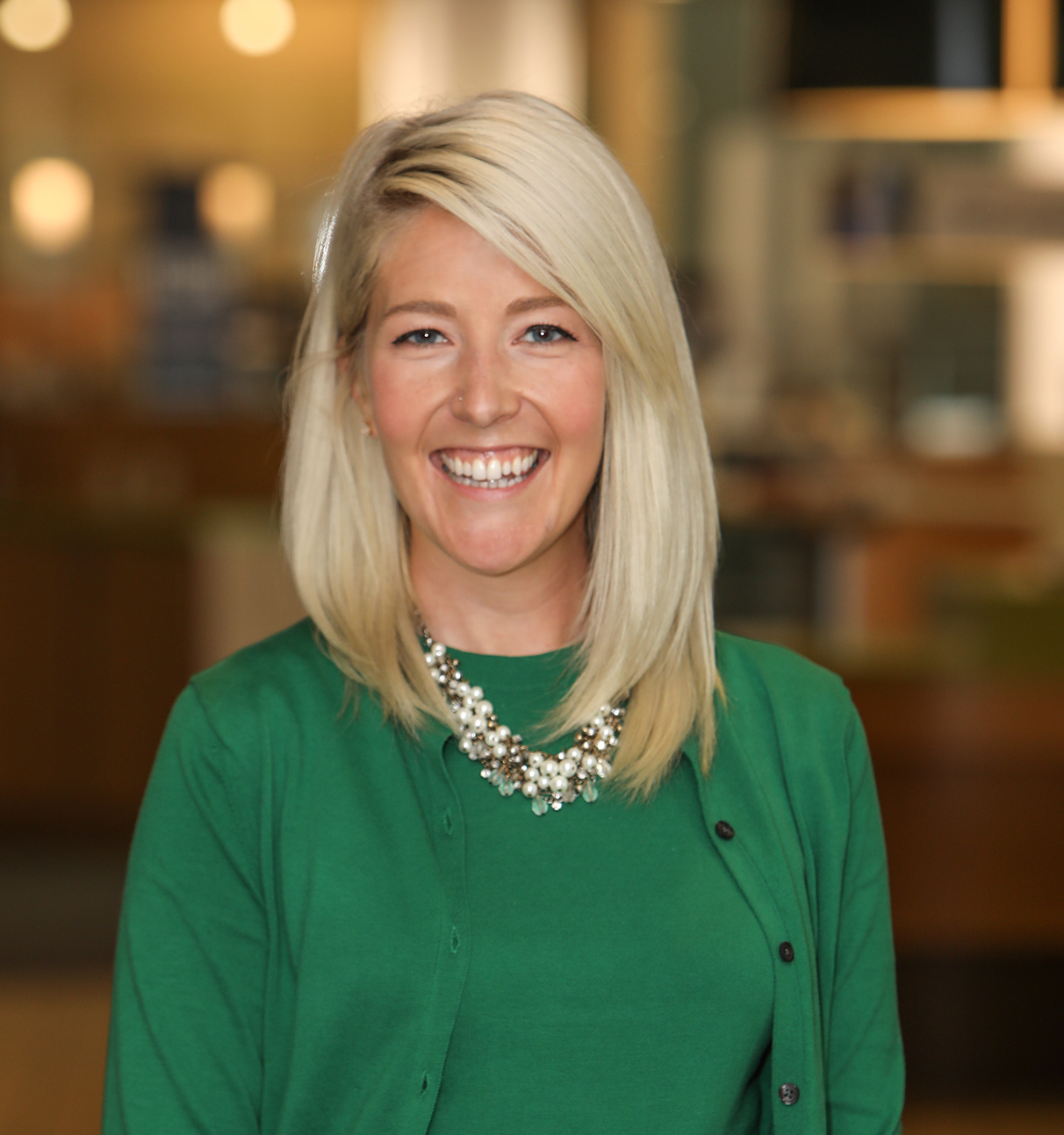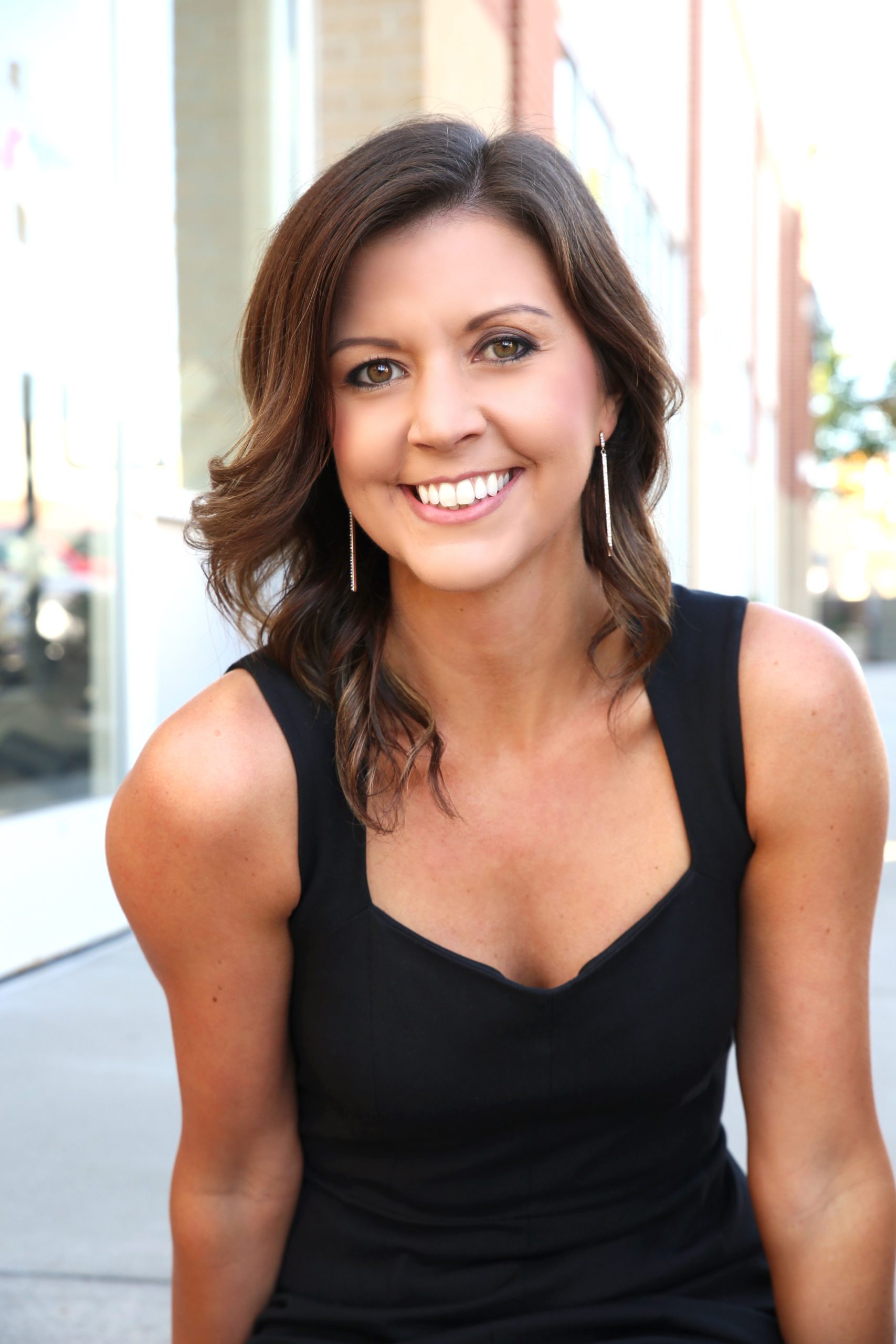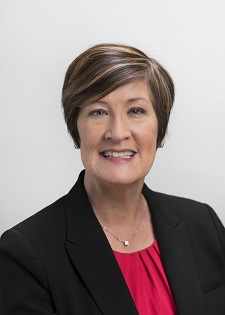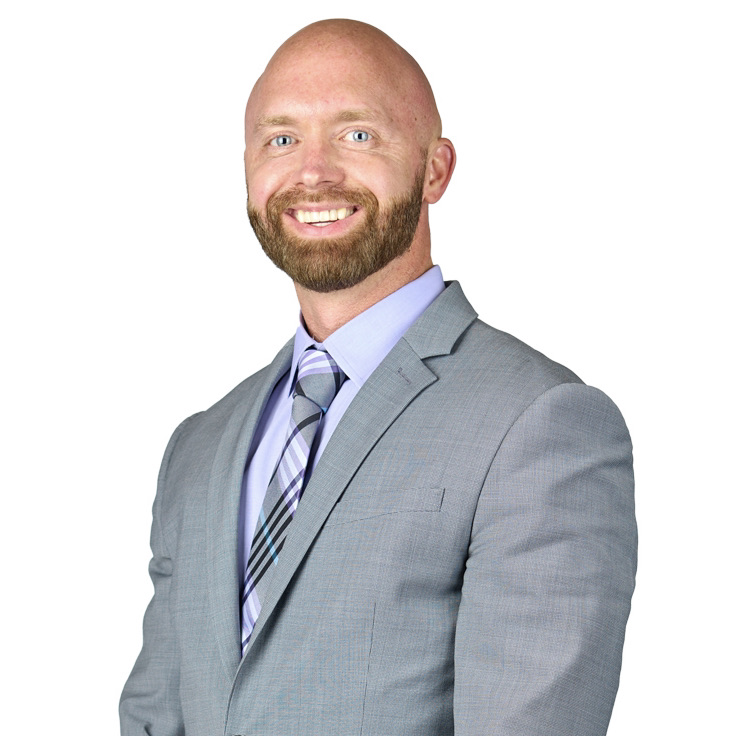Top-Level Takeaways
-
The credit union industry attracts talented managers from diverse sources, and each newcomer brings their own insight to put in play in the cooperative setting.
-
Adjusting to working for a not-for-profit is the first step for many, as they develop an appreciation for the credit union difference and help to advance the cooperative principles.
Making a career move into the credit union industry means joining a movement as well as changing jobs. While there’s a lot that’s the same, there’s also a lot that’s different for these cooperative transplants.
The primary differences, of course, include now working for a not-for-profit, and that customer service is now member service.
Below, six of those who have jumped into the movement from other industries share some of the insight they brought from their previous gigs which range from healthcare data management to front-line retail management and marketing, and from international fundraising to tourism promotion to pitching for a major league baseball team.

Karla Wallack, Executive Director, Affinity Foundation, Affinity FCU
Karla Wallack, Executive Director, Affinity Foundation, Affinity FCU
Karla Wallack has been executive director of the Affinity Foundationat Affinity Federal Credit Union($3.6B, Basking Ridge, NJ) for seven months. The foundation provides community grants, scholarships for student members, and a relief fund for financially struggling members.
Wallack joined Affinity after serving as international major gifts officer for the Rutgers University Foundation, where she traveled across Asia and Europe to visit Rutgers alumni and cultivate their philanthropic interest in the university.
What did you bring to the credit union because of your prior experience, and how specifically did the enterprise benefit?
Karla Wallack: It’s important that the person in my role has both for profit and nonprofit experience. I worked in marketing and sales leadership roles in the for-profit sector for 13 years before entering the nonprofit space, and I’ve spent the last 10 years in nonprofit fundraising and governance leadership roles.
This experience has allowed me to excel in operating a nonprofit, while still being a part of the leadership team at the credit union. Additionally, my experience in fundraising and nonprofit governance specifically is critical to growing the Affinity Foundation and increasing our impact on the communities we serve.
What was the biggest change for you, that you had to adapt to, after you made the move to a credit union?
KW: Just like for profits, nonprofit organizations have certain necessary policies and procedures to comply with charitable registration and other legal requirements.
One thing that was new for me was learning that there are additional considerations for a credit union foundation in order to be in compliance with the NCUA. There are also risk management concerns that affect the foundation as, although it is a separate 501(c)(3), we still have to follow the credit union compliance procedures since the foundation is closely tied to the credit union.
BONUS QUESTION: What is your bottom-line piece of advice to someone considering making a similar move?
KW: Learn about the history and culture of credit unions when considering a similar move. Although I had been a member of Affinity for many years prior to taking this role, I did not know the history of the credit union movement until orientation. In my opinion, the founding principle of giving back to the community is very important in setting the stage for a great organizational culture.
<img “”src=”https://creditunions.com/wp-content/uploads/2022/08/ToniaWhite_American11-1.jpg” />
Tonia White, Chief Employment Experience Officer, American 1 Credit Union
Tonia White, Chief Employment Experience Officer, American 1 Credit Union
Tonia Whitehas been chief employee experience officer at American 1 Credit Union($552M, Jackson, MI) for the past 16 months. She came to the cooperative after 20 years in store management at Bath Body Works.
What did you bring to the credit union because of your prior experience, and how specifically does the enterprise benefit?
Tonia White: I have 30 years of management experience. The benefit for American 1is my team’s dedication to our greatest asset our employees. Personally, I look for opportunities during times of change. COVID-19 provided us with a chance to pause, reevaluate, and commit to growing our teams through recruiting, developing, rewarding, and retaining the right person in the right seat philosophy.
What was the biggest change for you, that you had to adapt to, after you made the move to a credit union?
TW: The terminology and behind-the-scenes processes. The biggest positive change was our commitment to the communities we serve. For example, I’m given volunteer time each month to serve in my community. What a blessing!
BONUS QUESTION: What is your bottom-line piece of advice to someone considering making a similar move?
TW: I was not looking for a job it found me. Allow yourself the courage and curiosity to try something new.

Becky Daniels, Director of Community Engagement, CAP COM FCU
Becky Daniels, Director of Community Engagement, CAP COM FCU
Becky Daniels has been director of community engagement at CAP COM Federal Credit Union($2.6B, Albany, NY) for the past year. She most recently had been the first executive director for Discover Schenectady, the tourism promotion agency for New York’s Schenectady County.
What did you bring to the credit union because of your prior experience, and how specifically does the enterprise benefit?
Becky Daniels: One of the things that brings me the most personal and professional satisfaction lies in being a connector. I love to bring people, organizations, and ideas together to forge strong relationships, solve problems, and ultimately to serve the community. In each role that I have had, I’ve been fortunate to have opportunities to build a strong network of contacts, colleagues and friends in the Albany region.
In my first year with the organization, it’s been incredibly rewarding to continue to build on those connections and foster even deeper relationships on behalf of CAP COM. In particular, through the work of our CAP COM Cares Foundation, I’ve been able to not only bring new nonprofit partner organizations into the fold and connect them to our resources, but also to connect them with one another to make an even greater collective impact in our community.
What was the biggest change for you, that you had to adapt to, after you made the move to a credit union?
BD: Coming from outside the financial services industry, the largest learning curve for me was in getting up to speed with industry-specific regulations and standards and ensuring a strong knowledge of our product and service offerings. I’m very fortunate to have many wonderful colleagues that worked to make that transition, as well as my ongoing learning and development, smooth and enjoyable!
What is your bottom-line piece of advice to someone considering making a similar move?
BD: To trust in yourself and what you can bring to a position in a new industry or organization. I’m very fortunate to have had incredible opportunities in a number of different industries starting in education and continuing in healthcare, energy, tourism, and now financial services.
The biggest key to success for me has always been trusting that I was in my role for a reason. There will inevitably be a learning curve when you take on a new role, or enter a new industry but, truly believing in your abilities and owning your seat at the table is a key element in developing the trust of your team, your leadership, and your colleagues that will be vital to your ongoing success.

Amanda Turk, Corporate Communications Manager, CommunityAmerica Credit Union
Amanda Turk, Corporate Communications Manager, CommunityAmerica Credit Union
Amanda Turk has been corporate communications manager at CommunityAmerica Credit Union($4.2B, Lenexa, KS) for the past four months. She joined CommunityAmerica after eight years with the Kansas City Royals, most recently as director of publicity, where her focus was on anything that was business-related including community relations, charities, corporate partnerships, and marketing.
What did you bring to the credit union because of your prior experience, and how specifically does the enterprise benefit?
Amanda Turk: My experience working in baseball was very different, and it gave me a unique set of skills that I have been able to use at CommunityAmerica.
Often, those in the financial industry spend time pitching and sharing their stories specifically to those within the business community. Working on the business side of baseball, I spent a lot of time pitching stories to the community, but also to more targeted audiences that cared or needed the information more.
Strategizing in that same way has allowed us to target specific audiences through various outlets who will most benefit from the uniqueness of the products and services CommunityAmerica offers.
What was the biggest change for you, that you had to adapt to, after you made the move to a credit union?
AT: Working for a credit union may not be as sexy or glamorous as working in sports, but financial stability is something that impacts everyone. Understanding that means understanding you have a sort of responsibility to your audience.
People make choices for themselves and their families based off what we’re communicating with them, so it’s important to make sure that we’re doing our best to share information that allows them to make smart choices.
I know not every financial institution operates this way, but Community Americais fantastic in that it takes the responsibility of helping people achieve financial peace of mind above all else. So, while that has been a change, it’s been a very welcome one.
BONUS QUESTION: What is your bottom-line piece of advice to someone considering making a similar move?
AT: If you’re no longer learning and improving yourself or those around you in your current job, then you should know the time has come to make a change. Personally, when I started looking at making the change, I spent hours researching, reading, networking, and learning everything I could about whatever industry that a potential new job was available in.
I knew I wouldn’t learn everything right away, but I knew it was important when I got excited about the topic. If you don’t have that feeling at least some of the time, then it’s hard to improve. Of course, making the change can be intimidating or scary, but the best things are.

Kym Money, Vice President of Marketing Business Development, Credit Union of America
Kym Money, Vice President of Marketing Business Development, Credit Union of America
Kym Money has been vice president of marketing and business development at Credit Union of America($1.2B, Wichita, KS) for a little more than three years. She joined the cooperative after 25 years as director of marketing with one of the largest privately owned Pizza Hut Taco Bell franchisees.
What did you bring to the credit union because of your prior experience, and how specifically did the enterprise benefit?
Kym Money: My previous experience made clear to me the importance of being visible in the community and being viewed as an ally for progressive movement. Telling our story in a relatable and compelling manner has driven awareness and interest in our credit union.
CUAbegan as the Wichita City Teachers Credit Union in a science classroom of a local high school. Remaining authentic in the stories we tell provides built-in credibility with our community and those we serve.
What was the biggest change for you, that you had to adapt to, after you made the move to a credit union?
KM: The biggest change for me was a paradigm shift away from the bottom-line economics, instead focusing on making a difference in our member’s lives. There’s also a steep learning curve in navigating audit and compliance regulations.
BONUS QUESTION: What is your bottom-line piece of advice to someone considering making a similar move?
KM: I would advise anyone to just DO IT! Knowing that you make a difference in people’s lives makes it easy to come to work. It’s very fulfilling to be able to say yes to requests for help from the community.

Jeff Thomas, Vice President of Business Intelligence, GECU
Jeff Thomas, Vice President of Business Intelligence, GECU
Jeff Thomas has been vice president of business intelligence at ECU($3.7B, El Paso, TX) for the past 20 months.
He joined the Texas cooperative after 15 years in BI and data analytics and storage, primarily in the healthcare industry.
What did you bring to the credit union because of your prior experience, and how specifically does the enterprise benefit?
Jeff Thomas: I brought a lot of knowledge of enterprise data warehousing (EDW) and data and analytics to GECU. This is a fairly new space for GECU and credit unions in general. Within a year of having my team built, we have built and populated our EDW with our core, loan origination system, and some benchmark data.
We also have moved all descriptive analytics to Microsoft Power BI, which has freed up a tremendous amount of bandwidth for our employees and other leaders who spent countless hours deriving data manually and creating reports in Excel. We are still evolving in this space as we start down the path of predictive analytics and artificial intelligence.
What was the biggest change for you, that you had to adapt to, after you made the move to a credit union?
JT: The biggest change for me was how GECU focuses their strategies on their members and community. I have very much enjoyed being part of an organization that not only says they care, but shows it with the many charitable contributions that they sponsor and participate in. It truly feels like a family environment with people helping people.
BONUS QUESTION: What is your bottom-line piece of advice to someone considering making a similar move?
JT: I’ve worked in healthcare the majority of my career and the change was a little intimidating because I didn’t know the business of finance or credit unions. With that said, data is data and I’m very happy I made the change.
I’ve learned a lot quickly and with a lot of support from other leaders within GECU. Credit unions have a large community and following, so it has not been difficult to collaborate with others and learn what they are doing and help provide some direction in the industry.
These interviews were edited and condensed.